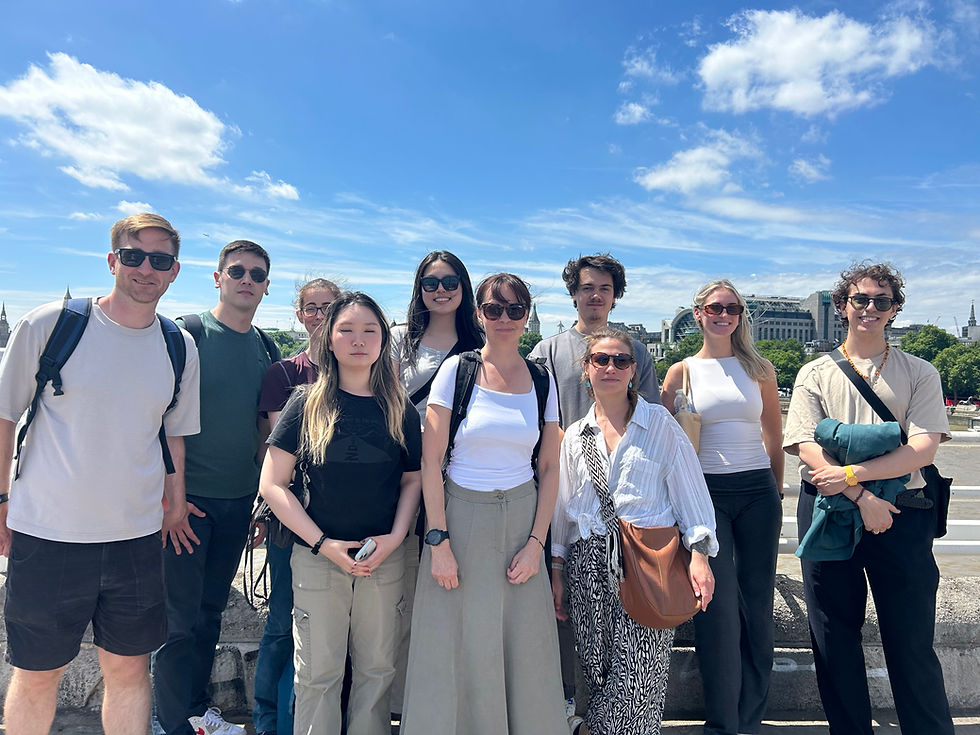Undergraduate Research Opportunities Programme (UROP) experiences
- Alex McCarthy

- Aug 28, 2025
- 3 min read
Updated: Sep 12, 2025

UROP is a research opportunities programme available to students from within and outside Imperial. This year we hosted two UROP students, Lily and Alan, for 6 weeks to gain their first experience of research in an academic lab.
Here, I asked Lily and Alan to reflect on their experiences, as well as their supervisors Lindsay and Matevz.
Lily on her Experience
What single skill did you improve the most?
Throughout my UROP, I became a lot more confident in practicing sterile technique. Initially, it was challenging to remember all the precautions and techniques used to ensure sterility during experiments, but I gained a lot of practice and experience with this throughout my time in the McCarthy lab.
What was the most unexpected challenge you faced during your research?
Something I found challenging during my research was having to perform volume and concentration calculations for different reagents, as this is something I was out of practice with. I am glad I was exposed to this, as it is a crucial aspect of performing successful experiments which I had overlooked.
Lindsay Supervising Lily
What did you gain from this short but intensive experience?
Can you describe the most rewarding experience you had while mentoring Lily?
UROP projects aim to provide undergraduate students with a realistic research experience. A challenging reality of wet-lab science is that experiments rarely go exactly to plan. Struggles in optimizing new assays or troubleshooting once tried and true methods requires resilience and perseverance. Lily was faced with such a challenge early on in her project when an established assay failed. What happened? Using her understanding of the assay, controls, and possible places where things could go wrong, Lily approached this setback with the keen eye of a detective solving a mystery. We discussed possibilities, explored the literature, ran additional experiments, and ultimately identified the problem. As the six-week project progressed, Lily applied this same approach and initiative to make the most of her UROP experience by learning a wide variety of skills from members across the lab and apply those skills to push her own project forward. Watching that growth, in confidence and independence as she began to write this new story, was the most rewarding experience mentoring Lily.
Matevz Supervising Alan
How does having undergraduate researchers in the lab benefit the research group?
Undergraduate researchers often arrive to the lab with a high level of enthusiasm and a strong desire to apply their knowledge in a practical setting, which can reinvigorate ongoing projects. While the main goal is for the students to learn, they can at the same time create meaningful contributions to the research projects, which benefits both the research group as well as the student.
Over the 6-week period, what are the most significant changes you typically observe in a student's confidence, skills, or understanding?
For many students, the UROP program is their first real research experience, where their work is not just a simulated exercise but a genuine part of a real research project. Students have the chance to participate and co-steer the planning, execution and evaluation of experimental work, which boosts their confidence, teaches them new skills, and increases their understanding of their chosen discipline. Perhaps most importantly, they learn how they can apply their skills in a real research setting, and gain an insight into the environment in which research takes place.



Comments